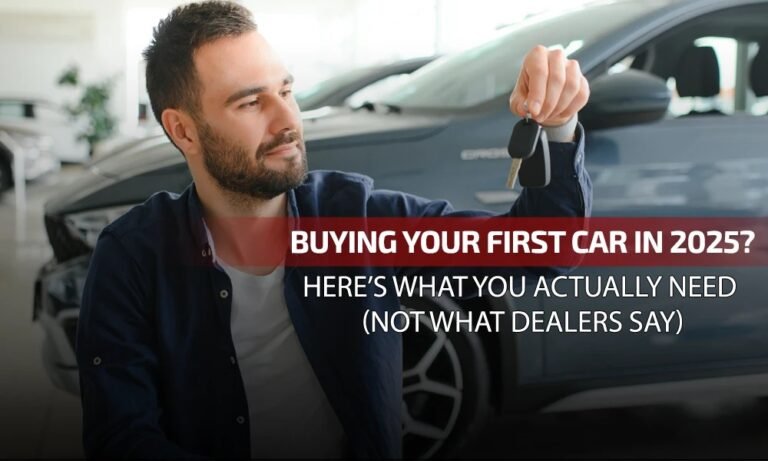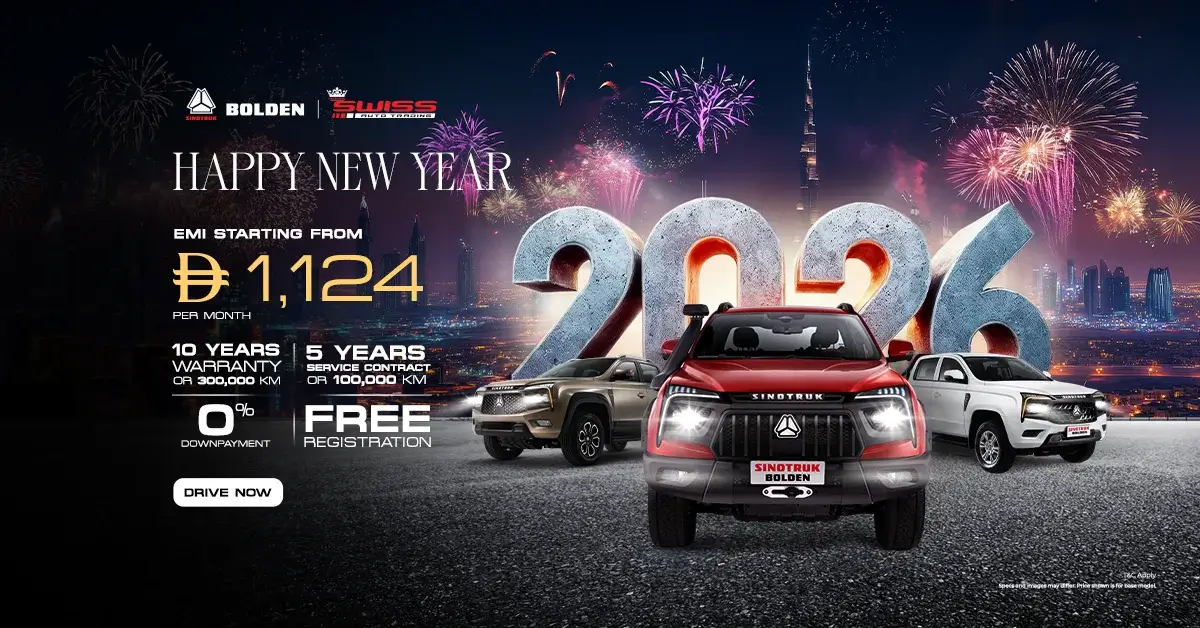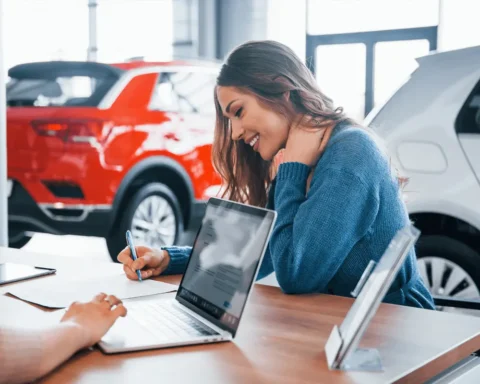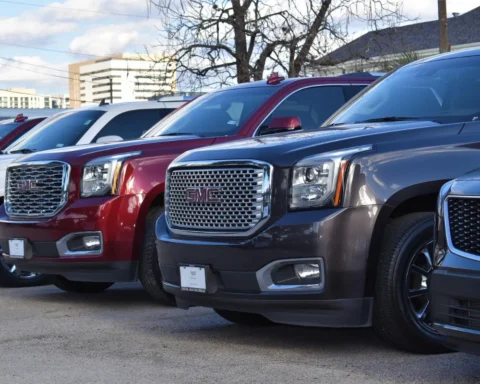Buying your first car is a lot of work. There are dozens of things you need to check before you settle on a choice.
I wish it were as simple as buying a piece of cloth (just pick the black one).
You see, it’s your first real step into independence—the kind where you don’t have to beg for rides, wait for cabs, or plan your life around someone else’s schedule.
You enter the world of independence. Free of dependencies.
And yet, for something so exciting, the car-buying process can feel… overwhelming.
Why?
Because the moment you walk into a dealership, everyone has an opinion.
The salesperson wants to upsell you on extended warranties. Friends will tell you to go used, others will say lease.
And online?
Good luck sorting through 300 Reddit threads and five-year-old YouTube reviews.
I am not saying this is the blog that will answer all of your questions. No. For that, you’ll still need to talk to an expert in person.
What I will do in this blog, is share tips on what NOT to do.
Think of it as removing the weeds off of your garden. Whatever you are left with, is useful to you.
Let’s start!
Budget Smart, Not Dealer-Conscious

Sticker price is one thing; actual cost is another.
Use the 20/4/10 rule—20% down payment, 4-year max loan, total spends on the car should be less than or equal to your 10% of income.
You see, it all depends on what type of balance you desire.
Say you have a good chunk of money saved for buying a new car, then you can put more than 20% as down payment, which means the loan duration will be shorter.
In return, you’ll be able to pay off the car loan faster without having to spend a lot on the maintenance.
Let me give you an example:
Say a person wants to buy a car that costs $35k.
According to the rule, at least $7k should be paid as down payment.
Now, let’s take 7% as interest rate (could be higher or lower depending on your credit score), and financing for 4 years.
Your monthly installment will be about $624.16 per month.
The interest rate is applied to the amount you finance. So, since you financed the remaining $28k for the period of 4 years, every year you pay an extra $1960 as interest.
I did the calculation according to the rule. But say you have more than $7k for the down payment, and your credit score is excellent, you’ll be ablet o reduce the amount of monthly spends on your car.
Is financing a used car wise for first-timers?
Not always. But securing a pre-approved loan from your bank or credit union gives you leverage—and often beats dealer rates.
Prioritize Dependability Over Bling
Your first car doesn’t need leather seats.
Go for something that works—Toyota Corolla, Honda Civic, or similar.
Owners often advise picking tried-and-tested models in base trims, then giving the dealer a firm budget and walking away if they push extras.
I’ve always and will always advocate for companies like Toyota, or Honda, when it comes to recommending people their first cars.
The Japanese cars require amazingly low maintenance. Plus, it can be your project car too, where you start modding it after a while.
The aftermarket part availability of the Japanese cars are insane!
Never Skip the Pre-Purchase Inspection

Even for new or certified cars, a PPI by an unbiased mechanic saves you from costly surprises.
I recommend an independent evaluation from your side. You can never be too careful.
Is $150–$200 for a PPI worth it?
Absolutely. Reddit users report finding hidden damage, fluid leaks, and bad suspensions—all worth the cost.
True Cost of Ownership Includes Everything
Don’t focus only on the car payment. Factor in insurance, fuel, maintenance, and dealer add-ons.
Always ask for an out-the-door price to avoid surprise fees.
Should you get insurance quotes before choosing a car?
Yes. Models with turbo engines or luxury trims can double your insurance premium. Check before committing.
Tactics That Work in Dealer Meetings
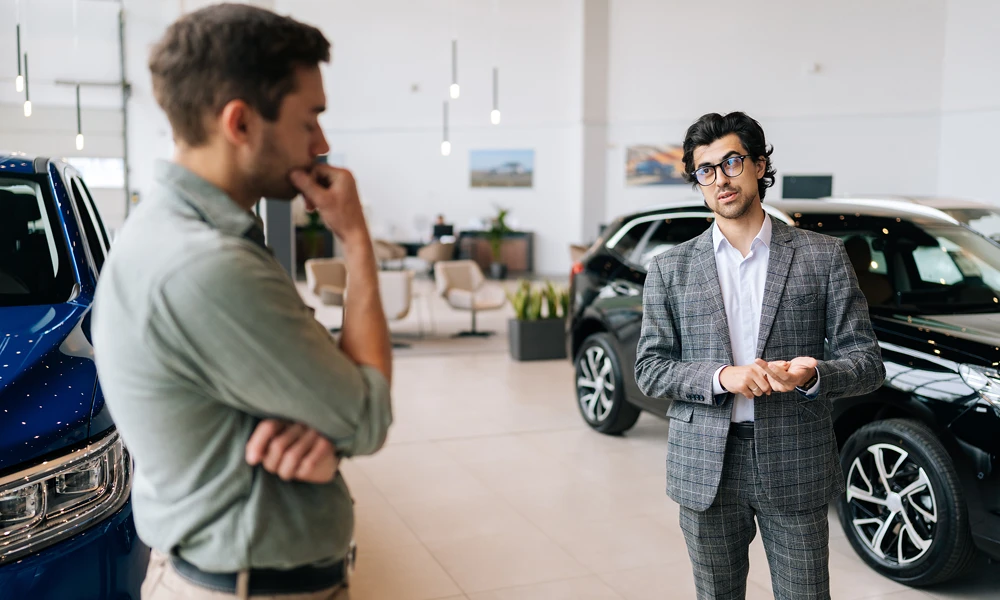
- Show up with pre-approved financing—it’s your best leverage.
- Go near month-end—they’re chasing sales targets.
- Say: “I’ll buy today if the out-the-door price works.”
- Walk away if they keep pushing add-ons.
How do I dodge dealer upsells?
Demand the final figure, scrutinize each fee, and say no firmly to unnecessary extras like paint protection or VIN etching.
Features That Matter (Not Just Flash)
Luxury doesn’t always equal value. Focus on:
- A dependable engine (no costly hybrids yet)
- Trusted safety tech (AEB, lane assist, blind-spot warning)
- Low-cost upkeep
What safety features should a first car include?
Adaptive cruise, automatic braking, and lane-keep assist—they make driving safer and more forgiving for beginners.
Don’t Let Ego Break the Budget
You should never spend more than 25% of your annual salary on a car.
It’s tempting to go big, but that leaves less room for life’s other big goals.
See your first car as more of a tool than anything else. You need it to get things done.
If you are tight on your budget, you can always look at used cars. I know there are people who want their first car to be new, but if I’m talking in practical terms, used cars provide so much value for the price they come at.
You should check them out at least once.
Your First Ride = Freedom, Not FOMO
You’re not buying a status symbol—you’re getting wheels.
Stick to your plan, insist on transparency, and let your everyday needs steer the choice.
More Than a Car, It’s a Feeling
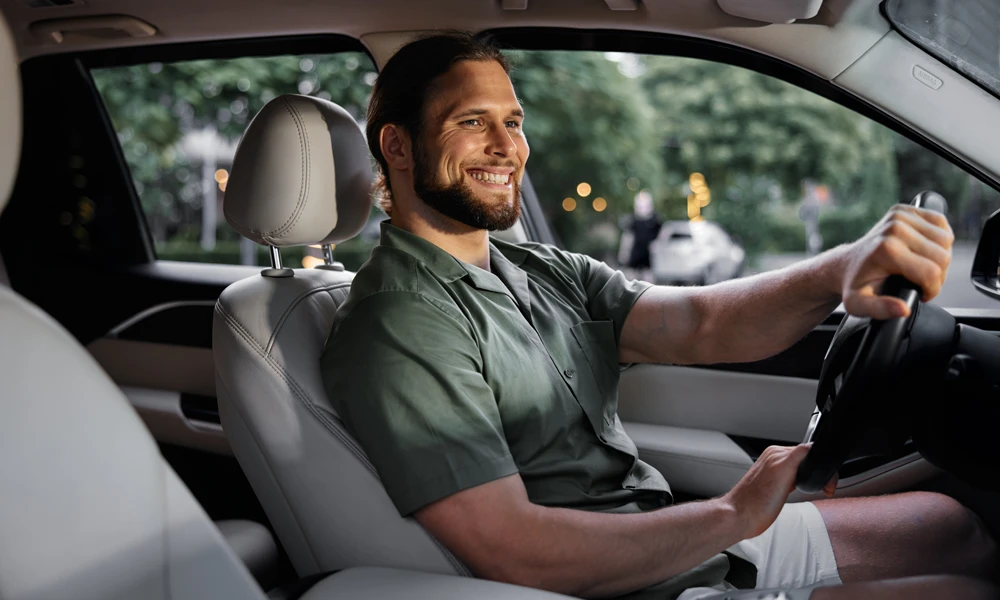
Your first car should serve you, not stretch you.
While I have mentioned in this blog the “don’ts of buying a car”, you need to remember that this car is going to be with you for a long time.
So, choose a car that you like. Take them out for a spin. See which car resonates with you more. Don’t see performance on paper or focus too much on the features. At it’s core, it should be reliable and make you feel good whenever you sit in it.

